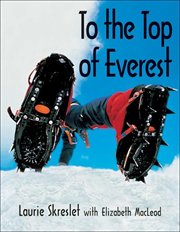From the big scrapbook of time,
here’s a look at Canada in 1982-
January 1: The average annual
salary for a woman is $17,439 while a man’s average salary is $31,655. StatsCan
reports 17.5 percent of families bring less than $20,000 a year and that 64
percent bring home more than $50,000 annually.
January 11: Big changes for news
junkies as the CBC moves The National
to 10 pm. The evening newscast is followed by The Journal at 10.22 pm.
January 12: The recession is bad
enough that Ottawa unveils a new Ministry of State for Economic Development.
Numerous other regional economic agencies are drastically overhauled.
 |
| Clifford Olsen will spend the rest of his behind bars in the Special Handling Unit of the Sainte-Anne-des-Plaines Correctional Facility in Quebec. |
January 14: Clifford Olden is
sentenced to life in prison. The country’s most notorious serial killer’s
family received $100,000 because Olden cooperated and showed the RCMP where his
victims were buried. He will die in 2011.
January 17: Record cold
temperatures blanket much of the nation. The day will be remembered as “Cold
Sunday.”
January 20: Buses and the Metro are rolling, again. Montrealers are thankful
that the 6,800 transit employees at the MUCTC have voted to end their six-day
illegal strike.
February – The first cases of
AIDS are reported in Canada.
February 15: Ocean Ranger, an oil
drilling rig located 265 kilometres off the east coast of Newfoundland, is
toppled during a wild storm. The structure collapses, killing 84 workers. An
inquiry will later determine there were inadequate safety procedures in place
and minimal safety equipment on the rig.
 |
| Ticket to Heaven is nominated for 14 Genies. It will win four |
March – The Genie Awards are held
at the Royal Alexandra Theatre in Toronto.
Best picture is Ticket to Heaven.
Best Actor is Nick Mancuso who played the lead in Ticket to Heaven. Best Actress goes to Margot Kidder for her role in Heartaches.
 |
| The Supreme Court of Canada has sat in this building since 1946. |
March 4: The Supreme Court of
Canada gets its first woman justice as Prime Minister Trudeau appoints Bertha
Wilson to the bench.
March 5: Steve Padborski wins the
World Cup Downhill Championship in Aspen Colorado. He’s the first North
American to ever win the prestigious prize.
He will retire from professional sport in 1984 at the age of 26.
March 25: Edmonton Oiler Wayne
Gretzky becomes the first NHL player to score 200 points in a season. He sets
the record when he scores two goals and two assists against the Calgary Flames.
March 26: Catherine and Ian
Rankin of Oakville, Ontario become the proud parents of the world’s first test
tube babies when twin boys are born to them.
March 31: The nation’s first
fibre optic cable factory opens in Saskatoon.
 |
| Loverboy wins six Junos, a recodrd that still stands in 2013. |
April 15: Protests by animal
rights groups manage to shut down the annual spring seal hunt in Newfoundland.
The traditional hunt has been taking place for hundreds of years.
April 17: Queen Elizabeth II is
on hand in Ottawa to declare the constitution repatriated to Canada. Enshrined
in the new constitution is the Charter of Rights and Freedoms. Quebec does not sign the deal.
April 20: Business tycoon Peter
H. Pocklington and his wife Eva are held hostage in their Edmonton home for
nearly twelve hours by a man who demands $1 million. Police storm the house,
wounding Pocklington.
May 6: Kyle Shewfelt is born in Calgary. He will
grow up to be a gymnast winning gold for Canada at the 2004 Olympic Games held
in Athens, Greece.
May 9: Gilles Villeneuve, the
country’s fabled Formula 1 race car driver, is killed while qualifying for the
Belgian Grand Prix. He is 32 years old. Son Jacques will follow in his father’s
footsteps.
May 16: The New York Islanders
beat the Vancouver Canucks four games to zip and earn the right to keep Lord
Stanley’s Cup for the next year.
May 18: CCM, the sporting goods giant, is floundering in $20
million of debt. Workers are asked to take a $3-an-hour pay cut, pay half of
their health insurance and cut holiday pay. Fed up with years of poor management,
they go on strike. The plant will never reopen and CCM will be eventually be
sold to Proycle in St. George de Beauce, Quebec.
May 18: Bombardier Inc. of
Montreal wins a $1 billion contract to build 825 subway cars for the New York
City Transit Authority. It is the biggest export contract in history for a
Canadian manufacturer.
May 21: After having been
arrested and accused of murdering four children in a Toronto hospital, nurse
Susan Nelles’ case is dismissed by a judge who rules that the Crown’s evidence is too
weak. She will be exonerated and the government will be required to pay her legal fees.
May 23: Brother Andre is
beatified by Pope John Paul II. This is the first step toward sainthood. During
his lifetime Brother Andre was a member of the Holy Cross Brothers order in
Montreal and was reported to have healed thousands of sick people.
May 30: The Big M Drug Store in
Edmonton opens for Sunday business in defiance of the Lord’s Day Act of 1906
that prohibits commerce on Sunday. The national blue law will be ruled
unconstitutional by the Supreme Court of Canada on April 24, 1985.

June 10: Montreal has a new CFL team, owned by distillery king Charles Bronfmann. The Concordes replace the defunct Allouettes. Despite the hometown advantage, they lose to the Toronto Argonauts in their first game.
June 12: The first Lotto 6/49
draw-- with a jackpot of $500,000-- takes place tonight. It is the national
lottery allows people to choose their own numbers.
June 28: Parliament passes the
Freedom of Information Act, giving Canadians access to private information
previously denied to them.
July 8: The Toronto Stock
Exchange hits a four-year low. The nation is in the worst business slump since
the Dirty Thirties and 11 percent of Canadians are looking for jobs. On the
bright side, inflation drops from 12.5 percent to 10.8 percent. The dollar will
continue to drop, skidding to 76.8 cents US by year’s end.
July 15: Anik 1, the nation’s
first communication satellite, is retired after ten years’ of faithful
service. It will be replaced by Anik D.
July 26: Karen Dianne Baldwin of
London, Ontario is crowned as the 31st Miss Universe. The 18-year old,
175-centimetre tall model comes home with $150,000 in cash and prizes.
June 28: Igor Gouzenko is dead of
a heart attack in Mississauga, Ontario at the age of 63. He was a Soviet spy
who defected to Canada in 1945. The stories he told officials about the Soviet
Union’s plans to take over the world triggered the Cold War.
August 23: The Turkish military
attaché to Canada is assassinated in Ottawa by Armenian terrorists while on his
way to work. The murder of Colonel Altikat has yet to be solved.
October 4: Pianist Glenn Gould is
dead today at the age of 50. The universally acclaimed artist has 65 albums to
his credit. He is best known for his ingenious interpretations of J.S. Bach.
October 5: Laurie Skreslet
becomes the first Canadian to reach the top of Mt. Everest. The expedition had been
five years in the making and cost $3 million.
October 18: After a series of
major strokes, former Ontario Premier John Robarts uses a shotgun to take his
own life.
October 26: By Royal assent, the
Governor General declares that from this day forward, July 1st, formerly known as
Dominion Day shall now be called Canada Day.
October 31: Margeurite Bourgeoys
is officially declared a saint by Pope John Paul II. The woman who devoted her
entire life to serving the poor is Canada’s first female saint.
November 2: Brian Mulroney,
president of the Iron Ore Company of Canada, Limited, announces that the firm’s
mining operation in Schefferville, Quebec will be closed for good. Thousands
will lose their jobs.
November 5: Some 10,000 Chrysler
Canada workers walk off the job at plants in Windsor, Brampton and Bramalea.
The CAW members want higher wages.
 |
| Canadian content, a.k.a. Cancon, is often referred to as 'the maple syrup law' by those who don't like it. |
November 16: The Applebaum Report
to the House of Commons recommends higher Canadian content on domestic
television.
November 28: Despite a driving rainstorm and bitter cold at Exhibition Stadium in Toronto, the Edmonton Eskimos
take home the Grey Cup for the fifth year in a row, having beaten the Toronto Argonauts 32 to 16.
November 29: Olympic gold medalist Percy Williams is dead in
Vancouver at the age of 74. Despite a rheumatic heart he won two gold medals
for Canada at the 1928 Olympics in Amsterdam. In 1929 he won 21 of 22 races during
a 21-day span on the US indoor circuit and in the following year won the
100-yard dash at the British Empire [Commonwealth] Games held in Hamilton, Ontario.
December 4: Prisoners riot at the
Archambault Federal Penitentiary in Laval, Quebec. Before it’s over, three
guards will be murdered—one who was finishing his last shift before retiring.
The two prisoners who started the fracas commit suicide.
December 10: Canada is one of 160
nations signing the UN’s Convention of the Law of the Sea. Our coastal jurisdiction
now begins 370 kilometres offshore.
December 12: The 38-day strike at
Chrysler Canada is over as employees vote in favour of a new contract.
December 17: The federal
government will pay Yukon natives $183 million to settle all outstanding land claims.
December 30: Kristen Kreuk is
born in Vancouver. She will grow up to become a
n actress best known for her role as Clark Kent’s love interest in the TV series Smallville.
n actress best known for her role as Clark Kent’s love interest in the TV series Smallville.
December 31: Autoworkers built
1.29 million vehicles this year and a full 86 percent of them are exported. We
buy 713,000 new cars and trucks but just a shade more than two thirds of them
are domestic. A full 25 percent of Canadians will buy a new car that is made in
Japan. There are 14.3 million vehicles registered for daily driving.




































No comments:
Post a Comment